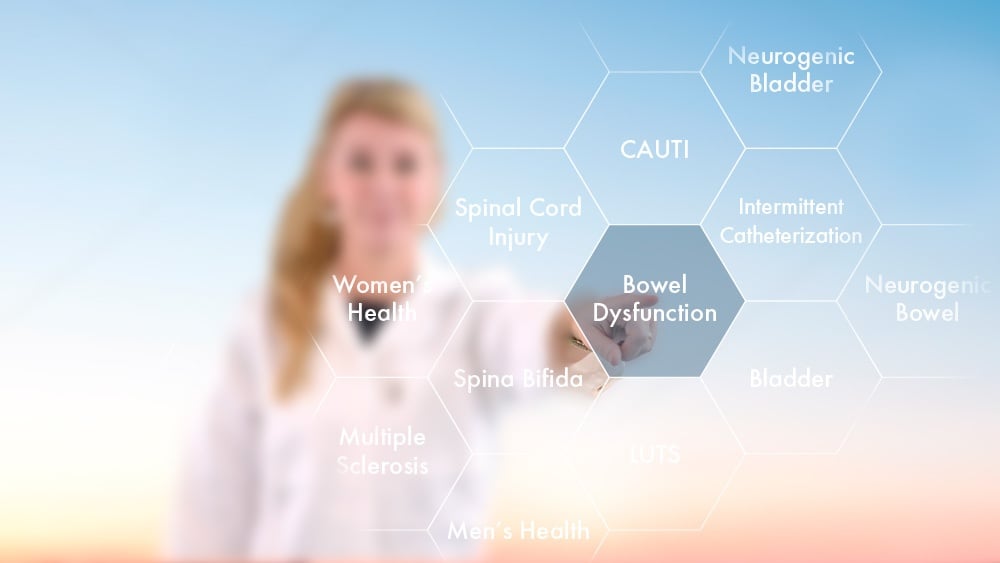At the International Continence Society (ICS) meeting in Florence in 2017, there was a round table session dedicated to anal (or fecal) incontinence.
Right from the start in the opening statement, it was established that breaking the silence surrounding fecal incontinence is the most important first step. This is also the main conclusion of a recently published review, which covers clinical management of fecal incontinence from the gynecologist’s perspective: Medical professionals should always ask the patient about anal and fecal incontinence.
Read MoreTopics: Science Alert, Bowel management
There are many conservative options and combinations of methods when it comes to bowel management for people with neurogenic bowel disorder (NBD).
Usually they involve diet, exercise, laxatives, as well as other methods. For some people who have struggled with conservative bowel management, surgery has been the only alternative, but surgery is generally best avoided as there may be a number of complications associated with it.
Read MoreTopics: Science Alert, Bowel management, Transanal irrigation (TAI)
Bowel function in children is a common concern, not only for the child but also parents and caregivers. As it is perceived as a measurement of health, deviations from normal bowel function often instigate numerous visits to a primary care provider.
Consequently, bowel dysfunction is one of the most common problems evaluated by pediatricians, pediatric gastroenterologists, and pediatric surgeons. This may be the reason why two recent publications review diagnosis, standard bowel care, and prevention of pediatric constipation.
Read MoreTopics: Science Alert, Neurogenic bladder, Children and TAI, Bowel dysfunction
Chronic constipation (CC) is a common bowel dysfunction. There are several reasons for bowel dysfunction and several treatment methods, which are addressed in a new review article.
Read MoreTopics: Science Alert, Bowel management, Bowel dysfunction
Fecal incontinence (FI) is a debilitating condition with a significant health burden. Although it has great clinical relevance and a profound impact on quality of life, there is still not much known about how to effectively treat this condition. This may be due to the diversity of causes of fecal incontinence, but may also be due to the lack of clinical investigation into possible treatment therapies.
Read MoreTopics: Science Alert, Bowel management, Fecal incontinence








